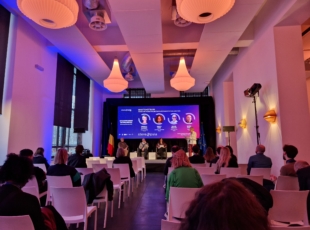Yes, they can: emancipation or reconversion, women invest in entrepreneurship

Article author :
In Belgium, women are gradually taking up positions in the entrepreneurship and investment sectors. More inclined to gravitate towards impact entrepreneurship, the obstacles they face remain numerous, but one thing is certain: female entrepreneurship is on the up and up.
Women make up 35.4% of the self-employed workforce in Belgium. In recent years, the growth in the number of self-employed workers is proportionally higher amongst women than men, according to a study carried out by the FPS Economy. In 2007 they only constituted 33.4% of self-employed workers. They are gradually reducing the gender gap in the Belgian entrepreneurial world.
When one thinks of entrepreneurship, one often thinks in terms of career change. But according to Loubna Azghoud, an expert in entrepreneurship and digital inclusion, it can also pave the way towards emancipation and greater autonomy in work organisation. Yet, the hindrances to female entrepreneurship remain large in number.
Amongst them is the balancing of private and working lives, which can be explained by the fact that the majority of the mental load and domestic tasks within the household are still today primarily assumed by women. To this is added a fear of risk, due to the less reckless upbringing given to girls than to boys. Female and male roles are thus established very early in childhood. Consequently, women are more prone to privileging typically female sectors such as healthcare and beauty, whereas the more lucrative sectors such as technology or finance are perceived as being male connoted careers.
Stereotypes which die hard
One of the most significant obstacles is access to funding. In 2021, only 1.1% of the funds earmarked for entrepreneurship was allocated to women. A disastrous figure, according to Loubna, who insists on the importance of raising awareness amongst women of the possibilities of getting in the doors of the investment funds, but also alerting investors to the necessity of investing in women’s projects. A necessity all the more apposite, given that return on investment is higher in projects which have at least one woman on the team.

Another factor is the persistence of the stereotype of the businessman. ‘When we talk about business, we talk about the businessman, in a suit and tie. Not about the businesswoman in a dress,’ regrets Loubna. ‘These are prejudices concerning what a person doing business should be like which still exist in the collective unconscious.’ This is carried over into the media: the role models of the entrepreneurial world are primarily men, with the exception of a handful of women who share very restricted media coverage.
Fortunately, attitudes are changing by degrees. And that begins when a company at the funding stage presents its project to investors. ‘The presence of a woman amongst the project promotors is reassuring,’ explains Loubna. ‘We know that the success rate is higher, because women are more responsible financially, more heedful.’
The rise of impact entrepreneurship
If women relate less to entrepreneurship than men, and if they still feel they lack legitimacy in terms of investing, it is partly due to the very masculine codes which prevail in these sectors. For example, the use of financial jargon and the vocabulary of competition. The skills required during the pitching of a project, explains Loubna. ‘You have to be able to make the investors want it, whilst getting straight to the point. These are things which are not taught to women.’

Furthermore, when we know that half of the women entrepreneurs are active in social sectors, the jargon of competition seems inappropriate. That may seem paradoxical however, because impact entrepreneurship is riskier and it is therefore much harder to access funding. So explains Flore Beaumond, an Impact Investing Associate at the Shaping Impact Group. The Benelux based company manages several impact investment funds, including SI3 Funds. This fund has just successfully completed the second round of funding and is on the lookout for new social businesses searching for funds and which match its inclusion and diversity profile.
In a world which is changing, priorities fall in behind and change as well. New economic models are being considered and investment funds are increasingly taking an interest in impact. A new generation of investors is looking for different ways of investing. They see beyond economic value and profit and wish to contribute to social value. This is important, as women have a role to play here.
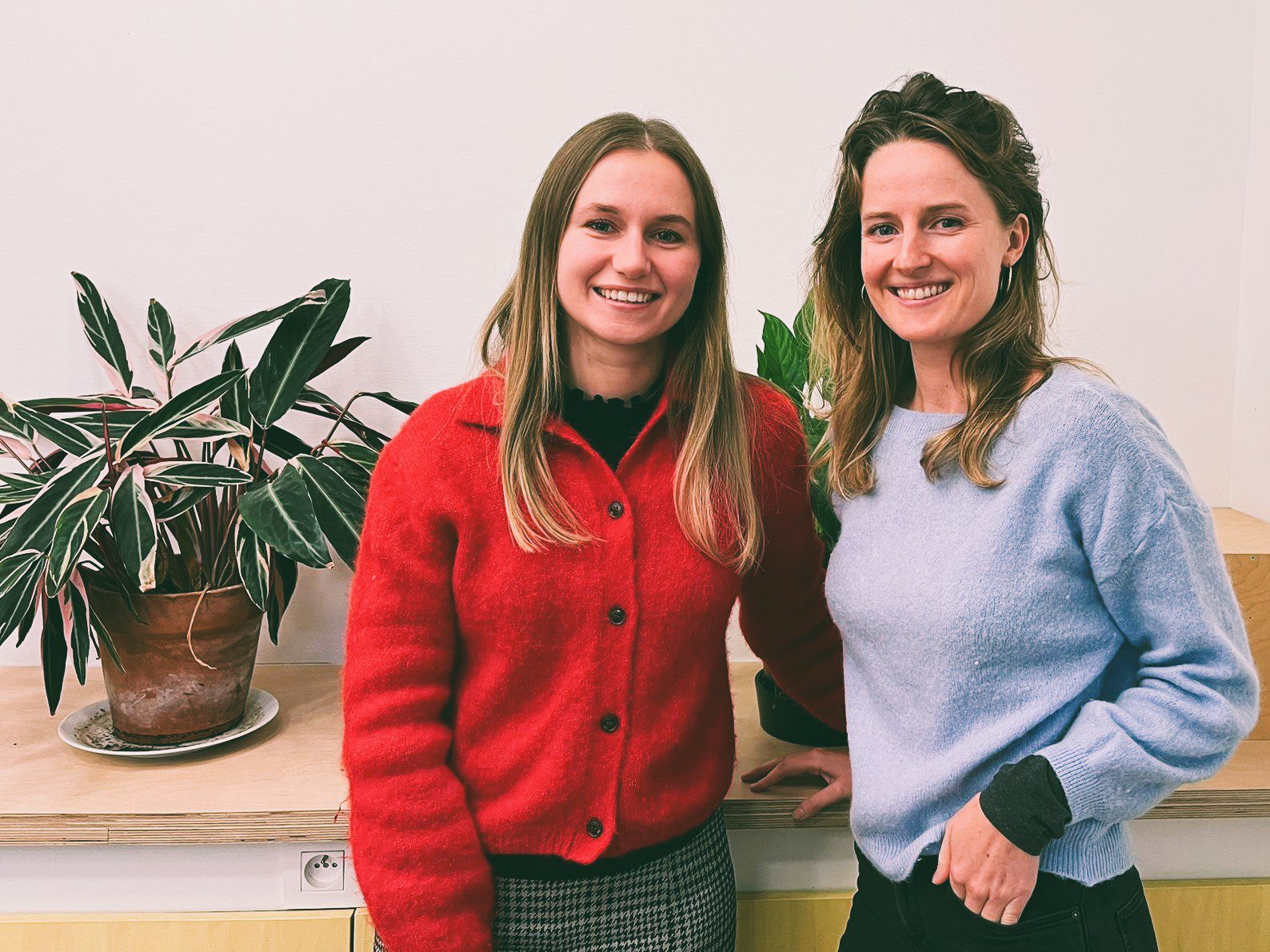
In the funds managed by Shaping Impact Group, the social aspect is of equal significance to the financial: ‘we believe that an aspect of sustainability is also financial, therefore the return on investment which our investors receive is sometimes just symbolic,’ adds Eva Ceh, who works with Flore. The returns in general thus amount to between 3 and 5%, but the social return on investment, or SROI, is much higher, with an anticipated return of between 200 and 300%. That is to say that for each Euro invested the aim is to create a social return with a value of between two and three Euros.
If the financial returns are relatively low, impact investment makes sense when it is compared to philanthropy. ‘A lot of the funds have roots in families or private funds. Their alternative is to invest in philanthropy or charitable organisations. These options do not offer them a return on investment. With inflation, they even risk incurring losses,’ explains Eva. ‘By choosing impact entrepreneurship, they get their money back and, even if they don’t make a lot of profit, it means that they can reinvest this money again and again.’ This solution is thus financially and socially sustainable because the more money the investors make, the more they can reinvest. The impact will therefore be larger than that of a single donation.
Starting up thanks to a business incubator
They have been developing in Belgium and elsewhere for several years now: business incubators come in various forms, with the support provided being of a longer or shorter period, or more or less intensive, depending on the programme. Launched by BeCentral in 2021, we are founders is a particularly intensive support provider programme for digital project promotors. It runs for an academic year, from September to June, and amounts to 38 contact hours per week. In 2021, it was Loubna Azghoud who led the project.
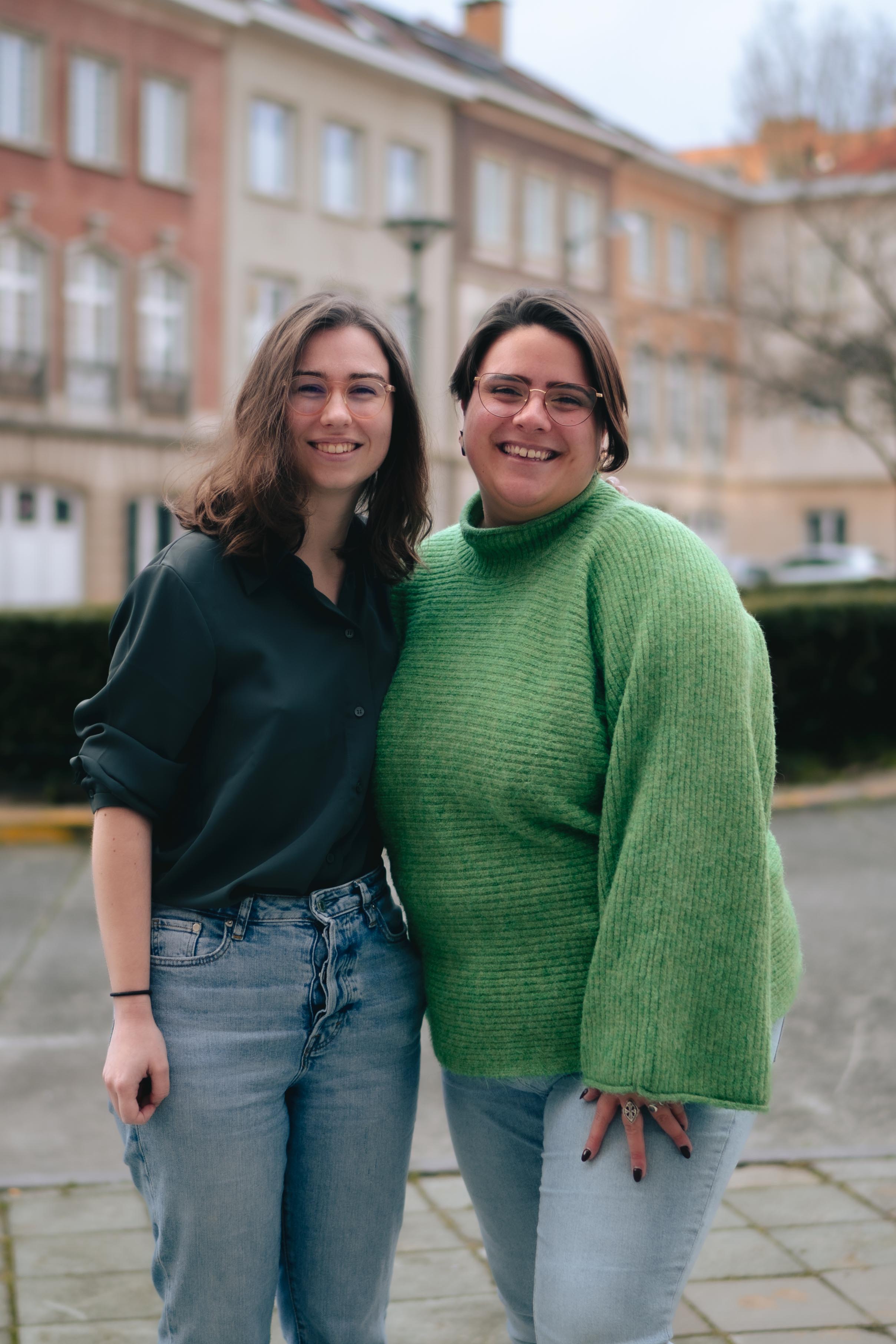
Ilaria Giglio and Chloé Boels took part in the first edition of the programme to kick-start their start-up Stream’Her, the French speaking mutual aid community which gives prominence to women in the world of streaming. Streaming, or the live broadcasting of video content, is a milieu still dominated by men, owing to its close connection with video games. The content has nevertheless widely diversified over the years and today includes themes such as cuisine, music and art, etc.
Through Stream’Her, the two young women, who have only just completed their studies, intend to act as a springboard for young female creators, by means of training courses and events. They have also created a Discord server on which around a thousand female streamers offer help to and inspire each other every day.
We need greater numbers of women involved in start-ups, creating high-growth sales companies, and we need to encourage them to have such ambitions by investing in them.
Claire Munck
Investment, not solely reserved for rich men
In any fundraising process, the investors will challenge the various aspects of a company: the project’s soundness, the development of a prototype, market traction, pre-existing turnover or lack of, etc. So many criteria which require investors to know the field in which they will invest their money. They will thereby be able to ask relevant questions and will be more qualified to ensure they are satisfied that the project is viable. The same is true for project promotors: it is solely by ascertaining what they are looking for in terms of funding or support provision that they will be able to approach the right investors.
For Claire Munch, CEO of BeAngels, one of the most active Business Angels networks in Europe, female investment is a two-sided coin. ‘We need greater numbers of women involved in start-ups, creating high-growth sales companies, and we need to encourage them to have such ambitions by investing in them,’ she argues. ‘But obviously, they would have even greater success if we had more women investors on our side who take decisions.’
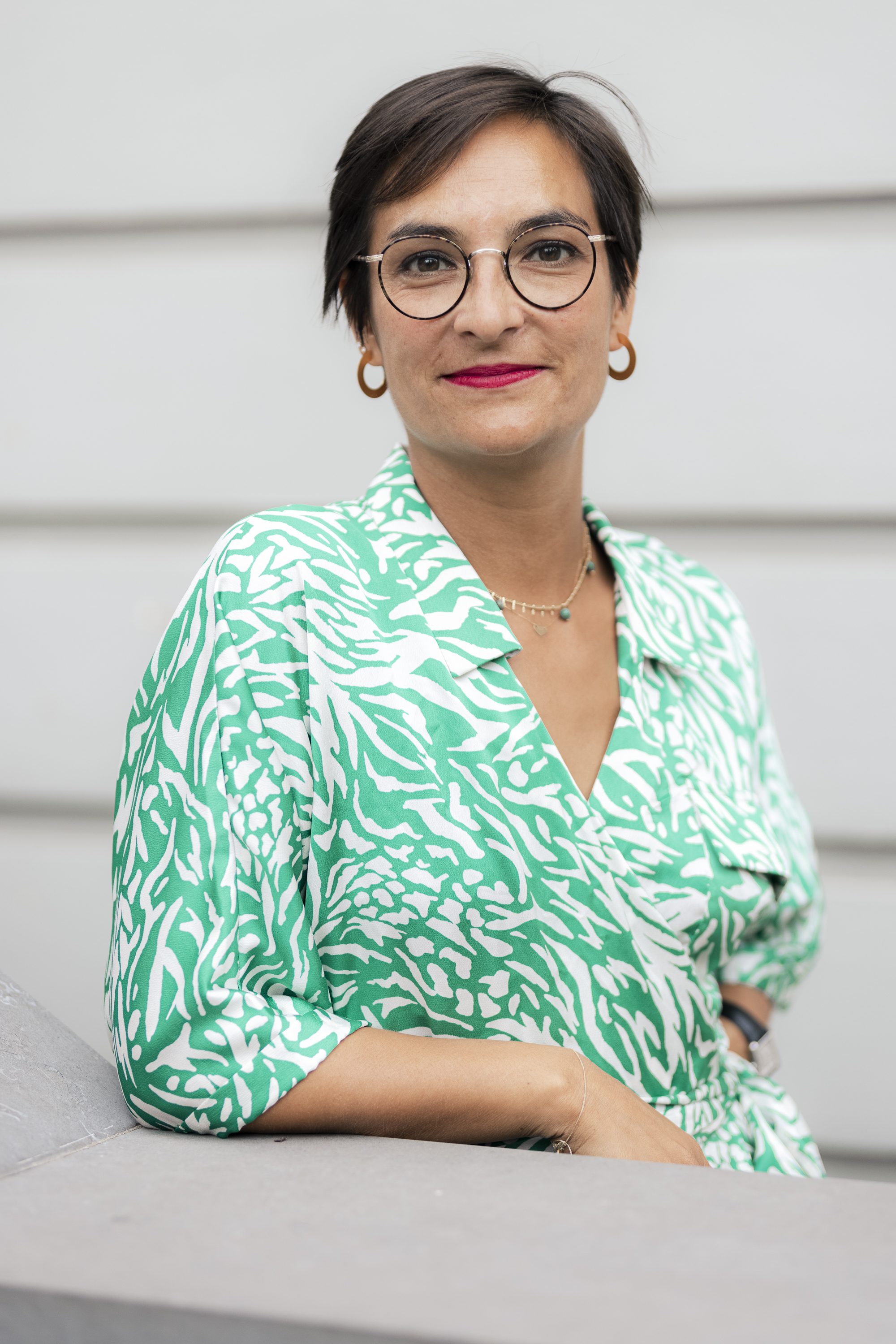
BeAngels acts as a contact liaison for companies looking for private investment, as well as those looking for guidance. Every month, the company holds pitching sessions to which entrepreneurs can come and present their project to potential investors. Claire considers this initiative important because private investment activities are intimidating, especially for women who have no or little financial knowledge beforehand.
Shaping Impact Group is embarking on a similar initiative, and is also highlighting inclusion and diversity. Because the company is based in Belgium and the Netherlands, people go to the various events in both countries on their own initiative. ‘We are trying not to focus solely on areas dedicated to impact, so that we don’t only target the people who are already invested or who are already involved,’ explains Flore. ‘We want to reach out to more women’s networks, because we are convinced that they need to be encouraged into entrepreneurship and social investment.’
When it comes down to actually starting to invest, the number of ideas received is very large and the financial character can appear terrifying. Many people think that to become a Business Angel it is necessary to have had a career in finance, or to own significant assets, or to have stopped working. But, according to Claire Munck, these prejudices are merely the consequences of a poor understanding of the subject and contribute to making it more difficult for women to access this milieu.
Building and maintaining a stable network
In response to the real demand on the part of woman to be supported in the process of becoming Business Angels, BeAngels thus offers services to assist people who wish to take their first steps in investment. The programme includes: training courses, group learning sessions and support provided by coaches who are specialists in the field.
But also and perhaps especially: access to a network of investors. ‘The advantage of a network is that you find yourself with people who have expertise and experience which vary from and complement our own,’ explains the BeAngels CEO. ‘We can therefore help one another, deconstruct received ideas about the profile of an investor, and learn so much.’
To get started, Claire suggests beginning with small portfolios or young companies, for the time it takes to understand the ins and outs of investment and to invest larger sums later on, when you have more confidence in your own expertise.
The advantage of a network is that you find yourself with people who have expertise and experience which vary from and complement our own.
Claire Munck
Hors Norme is a network for female entrepreneurs launched by Clémence Braun just over two years ago. She defines her network as an organisation which enables women to carry through with their projects, to kick-start them, and to discuss ideas with other women in order to create mutual aid or partnerships. For a monthly fee of forty Euros, the members can take part in three types of event held each month.
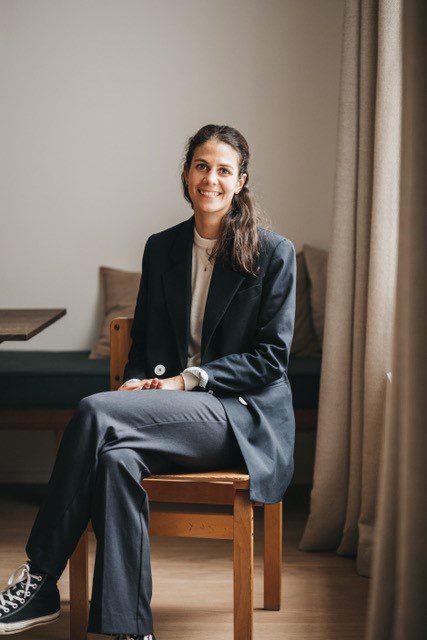
The workshops consist of training courses in different areas such as interpersonal relations, marketing or legal matters. ‘Female entrepreneurs are often solopreneurs or work in small teams. It is thus important to know how to do a lot of things,’ notes Clémence. ‘Trends also change constantly, there are always new things to learn. That is why benefiting from continuing education is crucial.’ This also enables people to attend training courses at a reduced price, as similar training courses are often costly, and women operating solo cannot always afford it.
The talks consist of meetings intended to be more inspirational led by guest entrepreneurs who come along to talk about their career paths. They enable people to meet one another, and make talking over ideas easier, especially over a drink. Finally, once a month breakfasts are organised. In this last part, it is the members who help one another. Sitting around a table in groups of four, the female entrepreneurs can share the difficulties they encounter and have discussions based on ‘challenges,’ suggest solutions, etc.
A large number of events organised by the network are focused on the financial and investment sector. Whether it be tales of the experiences of entrepreneurs who have raised funds, investors who have worked with shareholders’ equity, talking about money and investment within a network encourages women to gravitate to these types of opportunity.
Consisting of only 140 members, the Hors Norme network is intentionally of a small size, as Clémence is convinced that it is in small groups that people really get to meet one another. Another specific feature: all of the members of Hors Norme are genuinely women entrepreneurs, which is not the case in other organisations. For Clémence, focusing the network uniquely on entrepreneurship makes sharing easier amongst people with similar profiles and who can give each other a boost. ‘Obviously, these women share differences within their projects, but they are all entrepreneurs,’ she makes clear.
Whilst Clémence is the leader of a women’s network, she is nevertheless convinced of the plus-value of taking part in a mixed network at the same time, as the two are complementary. ‘But women need to feel less alone in entrepreneurship, to combine their personal life with their working life,’ she adds. ‘You come across these things a lot in a female network and perhaps less in a mixed network.’
Today, it remains difficult for a woman to get involved in business and invest in Belgium. The country – and the world – is having to deal with unprecedented crises. Clémence nevertheless remains convinced that better times are to come and that people need to persevere. Women are often on their own in their projects and their companies remain smaller in size, but they are driven by a genuine wish to take up the positions which are rightfully theirs: female entrepreneurship finds itself at an unprecedented turning point in society.
A story, projects or an idea to share?
Suggest your content on kingkong.


